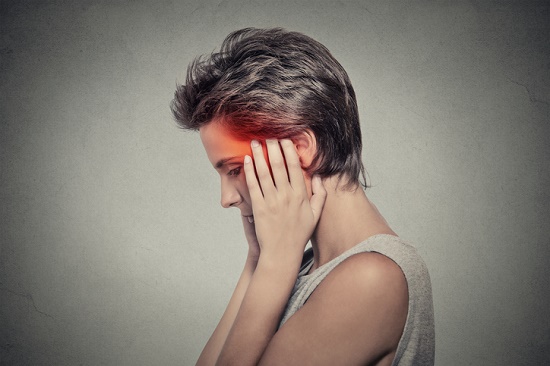
Even though it’s true that there is at this time no scientifically-established way to cure tinnitus, researchers are hard at work to identify one. In the meantime, a number of tinnitus therapy options are available that can afford significant relief.
Think of it in this way. If you have a headache, you take Tylenol despite the fact that it doesn’t “cure” your headache. Pain relievers only make the pain disappear into the background so that it doesn’t impact your day. Similarly, tinnitus therapy can help limit the severity of symptoms so that your tinnitus has minor affect on your daily life.
Seeing that everyone reacts to tinnitus differently, there’s no one-size-fits-all treatment. You’ll need to work with your provider to uncover the option that works the best for you.
Here are many of those options.
Tinnitus Treatment Solutions
If you are suffering from tinnitus, you’ll want to explore the following treatment options with your hearing care or healthcare provider.
Treatment of the underlying condition
Whereas most cases of tinnitus are not curable—and result from hearing loss or other non-reversible damage—certain cases are the result of an underlying physical ailment. You’ll want to rule these out prior to seeking other treatment methods.
Potential physical causes of tinnitus include jaw joint problems (temporomandibular joint, or TMJ dysfunction), too much earwax or any other blockages in the ear canal, head and neck injuries, and responses to specific medications.
General Well-Being
The seriousness of tinnitus symptoms can fluctuate depending on overall health. Taking steps to enrich general health is, consequently, something tinnitus sufferers can get started on right away to alleviate the level of intensity of symptoms.
Each patient is different, and what works well for someone else might not be right for you. The idea is to experiment with different activities to find out what works best.
Activities that have shown promise include instituting a healthy diet, achieving adequate physical exercise, meditating, and partaking in activities like cycling, which can cover up the sounds of tinnitus.
Hearing Aids
Tinnitus is commonly linked to hearing loss and hearing injury. In reaction to reduced stimulation from external sound, the brain undergoes maladaptive changes that lead to the perception of tinnitus.
By boosting the magnitude of environmental sound, hearing aids can help mask the tinnitus, making the sounds of tinnitus less conspicuous. Hearing aids also provide elevated sound stimulation to the brain, which is presumed to be neurologically beneficial.
Sound Therapy
Sound therapy is basically the delivery of sound in the form of white noise, pink noise, or nature sounds to decrease the perceived burden or severity of tinnitus.
Sound therapy works by masking the tinnitus and also by training the brain to recategorize the sounds of tinnitus as trivial. This dual effect can limit the short and long-term severity of tinnitus.
Sound therapy can be supplied through special tabletop gadgets, but also through portable media products and even through hearing aids. Medical-quality sound therapy incorporates personalized sounds that match the pitch of the individual’s tinnitus for the best results.
Behavioral Therapies
Remember that tinnitus is the sense of sound in the brain when no outside sound is present. The condition is, for that reason, very personal, and each person reacts a unique way.
In fact, whether or not the individual perceives tinnitus as life-altering or as no-big-deal is largely as a consequence of emotional tendencies and not to the intensity or pitch of the tinnitus. That’s why cognitive/behavioral solutions to tinnitus therapy have been proven to be exceptionally effective.
Several therapies exist, including Mindfulness-Based-Stress-Reduction (MBSR) and Tinnitus-Retraining-Therapy (TRT), which blends cognitive-behavioral-therapy with sound therapy.
Drug Therapies
Even though there are no current FDA-approved medications for tinnitus, antianxiety and antidepressant medications are frequently used to manage the behavioral side effects to tinnitus. These medications do not appear to affect tinnitus itself, but may supply much-needed relief if thought necessary by your doctor.
Experimental Therapy
The search for a tinnitus cure is on-going. A number of experimental therapies are in development or evaluation and newer methods become available every year. If your tinnitus is significant, and you’ve achieved very little benefit from existing therapies, you might be a candidate for one of these cutting edge treatment options.
Check out the Experimental Therapies webpage at the American Tinnitus Association website for more information.
Obtain Relief For Your Tinnitus
Tinnitus is being aggressively studied, with new discoveries and potential treatment options introduced every year. Even now, there are several encouraging treatments that, while not providing a cure, can offer appreciable relief. You owe it to yourself to consider these options, remain positive and persistent in your tinnitus care, and work together with your provider to fine-tune your treatment plan for the best results.